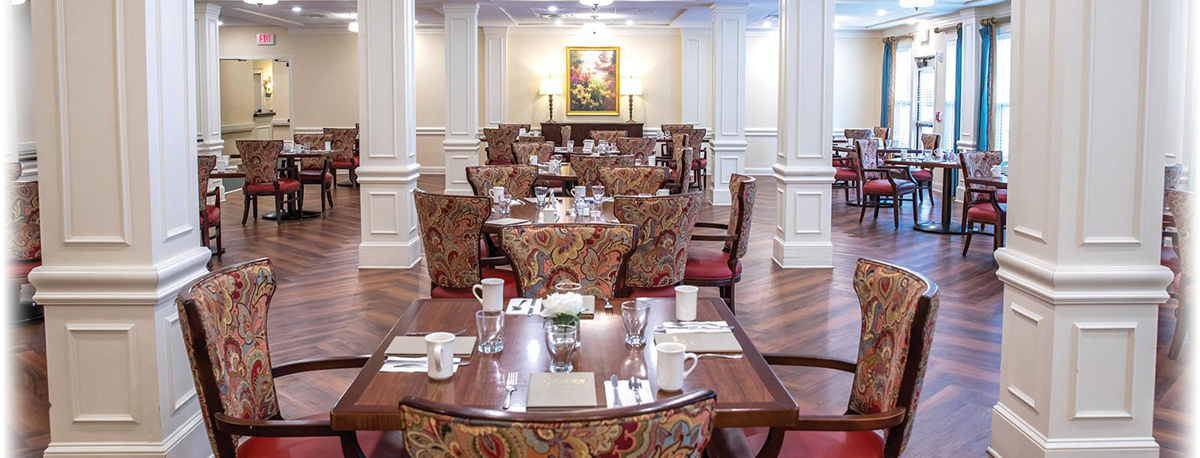As your loved ones age, so do their needs, and there may be a time when assisted living can no longer give them everything they need. While assisted living communities are an excellent way for your loved one to have a high quality of life, they sometimes aren’t equipped with everything they need to help someone with memory impairment. This is when memory care comes in.
Memory care communities exist to help support people struggling with memory impairment or memory concerns. If a loved one is dealing with memory impairment and it’s beginning to affect their day-to-day life, it’s time to consider memory care. By understanding the signs of cognitive decline and memory problems, you can make the right choice for your loved one so they can get the care they need.
What Is Memory Care?
Memory care communities are specialized residential communities set up to help seniors dealing with all forms of memory impairment. These communities provide a supportive and safe environment so that residents can have a high quality of life and are specifically equipped to help address the challenges often associated with memory impairment.
These communities typically offer all kinds of services, amenities, and programs designed to help combat cognitive decline and encourage independence for the residents. The teams on-site help with daily activities, medication, meals, and more so that residents are safe, happy, and keeping a high quality of life.
A Safe Environment
One of the best things these communities offer is a safe and stable environment for residents. Since memory impairment is often associated with wandering or getting lost, the hallways and homes are typically clearly marked with a simple system so residents can stay safe and know where they are. The communities are also secure and fenced in to prioritize safety.
Specialized Care
The teams in memory care are trained to deal with the complications often associated with memory conditions. They have a deep understanding of all forms of memory impairment and are equipped to provide the care residents need. Each resident in these communities receives a custom-tailored plan to suit their exact situation so that they can remain independent.
Structured Activities & Routine Programs
One of the best ways to help support a loved one with memory problems is to build a proper routine, and memory care communities are especially well-trained for this. The programs, events, meals, and medication timings are all structured in a way that’s convenient and interesting for the residents. The staff also helps residents needing to get to programs, therapy, or classes so that they can also get where they want to be!
How to Tell If a Loved One Needs Memory Care
Recognizing when a loved one needs memory care can be a challenging decision. Approaching this conversation with empathy, understanding, and a focus on their well-being is a healthy way to help make a decision. It can be helpful to consider the following:
- Cognitive decline. Look for signs of memory loss, confusion, or any difficulty performing their daily routine. If they begin forgetting things often, dealing with temporary confusion, or important things like special dates or addresses, they may be dealing with memory impairment.
- The need for additional levels of care. Assisted living communities often offer different levels of care to suit a resident’s needs. If they suddenly need a higher level of care, or you notice that their quality of life is becoming impacted by their needs changing, it may be time to look at memory care.
- Safety concerns. Since wandering, getting lost, and forgetfulness are often involved with memory impairment, it’s important to note if this happens more often. If your loved one begins wandering or forgetting where they are, memory impairment may be involved.
How to Choose a Memory Care Community
When it comes to picking a place for your loved ones to stay, it’s important that you do research ahead of time. Several factors need to be taken into consideration, like:
- The levels of care offered. Check to see what plans are offered and how much care the community can offer your loved one.
- The location and setup of the community. Location matters! Tour the facilities beforehand through a routine visit and see for yourself what life is like for the residents there.
- The licensing the community has received. It’s always a good idea to check that the community you’re looking at is properly licensed and registered with the appropriate governing bodies. There are several organizations in the United States that offer certificates to memory care communities if they meet certain regulations.
- The programs and services offered. It’s important that a memory care community offers programs and services that are suitable for residents. Programs or classes that focus on improving cognitive health and encouraging mental and physical health are an extremely important part of a high quality of life!
Give Your Loved One the Support They Need
When considering the transition from assisted living to memory care, it’s crucial to put your loved one’s quality of life and happiness at the forefront. By choosing a highly-qualified community that offers specialized treatment, beneficial programs, and compassionate staff, you can rest easy knowing your loved one will be safe, happy, and treated well.
Remember that the decision to move your loved one to memory care should involve a lot of open communication with them. It’s important you stress that their happiness is important to you, and you just want them to have a high quality of life.
At Bellaire at Stone Port, we care about each and every one of our residents. Schedule a tour today to see for yourself the high quality of life each and every one of our residents has!




